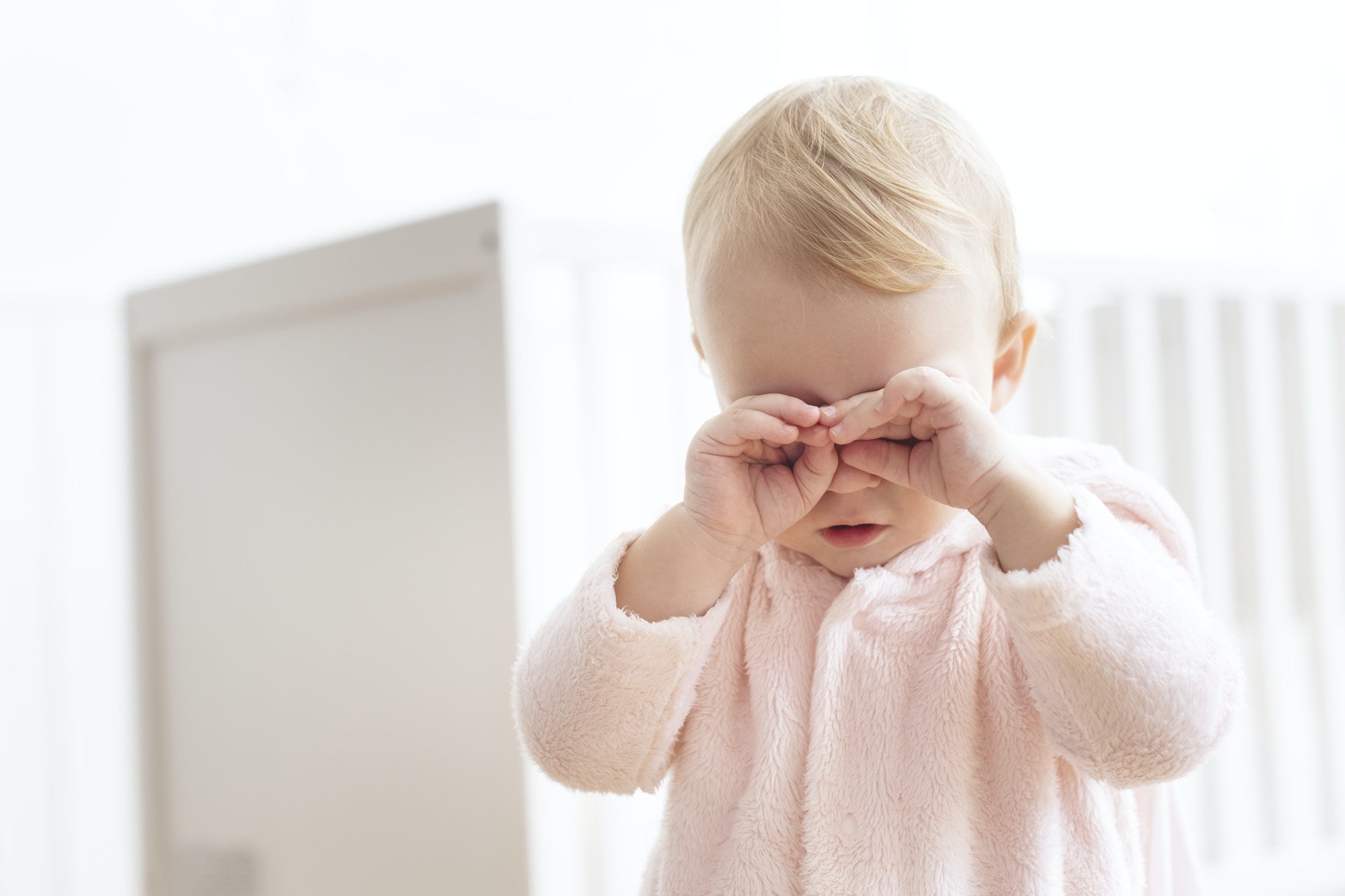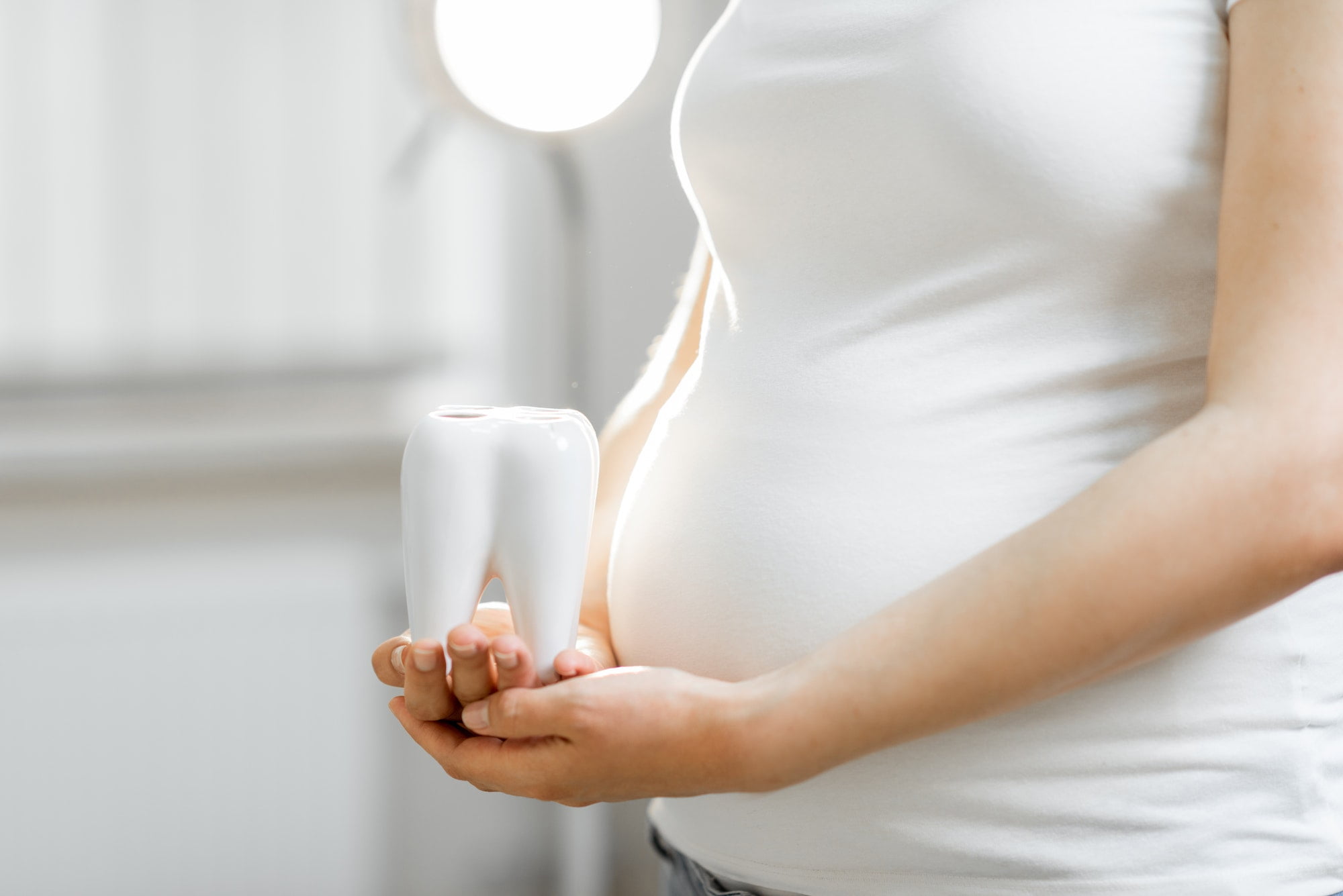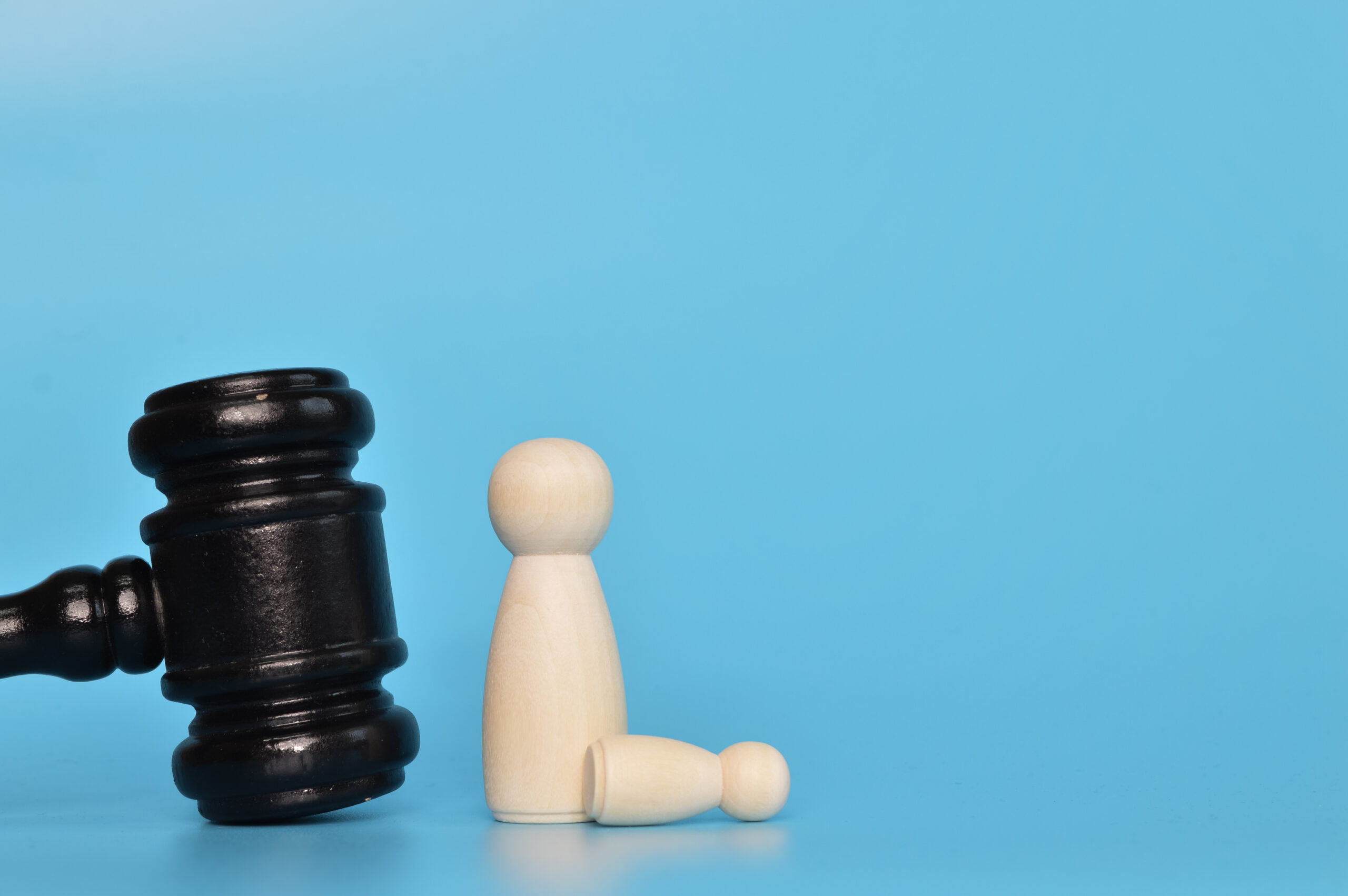Table of Contents
ToggleWelcome to the wild, wonderful, and occasionally bewildering world of parenting! As the parent of a newborn or an infant, you’re undoubtedly brimming with questions about your baby’s behavior. Maybe you’ve noticed your little one engaging in an unexpected activity, like Baby Aggressively Rubbing Face with Hands. It’s enough to make any parent scratch their own head, wondering, “Is this normal?”
It’s essential to understand that babies, like adults, have ways of communicating their needs and discomforts. They rely on a different set of tools, like crying, cooing, or yes, rubbing their faces, to “tell” us what’s up. But when that cute little face-rubbing crosses over into seeming more aggressive, it can leave parents feeling uneasy.
In this guide, we aim to bring clarity to this quirky behavior. We’ll dive into why babies might rub their faces, distinguishing normal baby antics from potentially aggressive rubbing, and how to decode your baby’s actions. Are they simply exploring their features, or are they communicating something more, like discomfort or tiredness?
Beyond the why, we’ll also explore what you can do about it. You’ll get practical tips to soothe your baby and understand when it might be time to consult your pediatrician.
We’ll also address the most frequently asked questions about babies rubbing their faces, ensuring you feel empowered and informed. Remember, knowledge is power, especially when navigating the marvelous journey of parenthood.
So, buckle up, because we’re about to dive into the fascinating world of baby behavior. Ready? Let’s roll up our sleeves and get started with understanding why babies might rub their faces.
Understanding Why Babies Rub Their Faces
From adorable baby coos to the sudden onset of giggles, your little one’s behaviors can be both heartwarming and perplexing. One such action is the often mysterious face rubbing. You may have observed your baby moving their tiny hands across their face and wondered, “What gives?” Let’s take a moment to unravel this puzzle.
Normal vs. Aggressive Face Rubbing
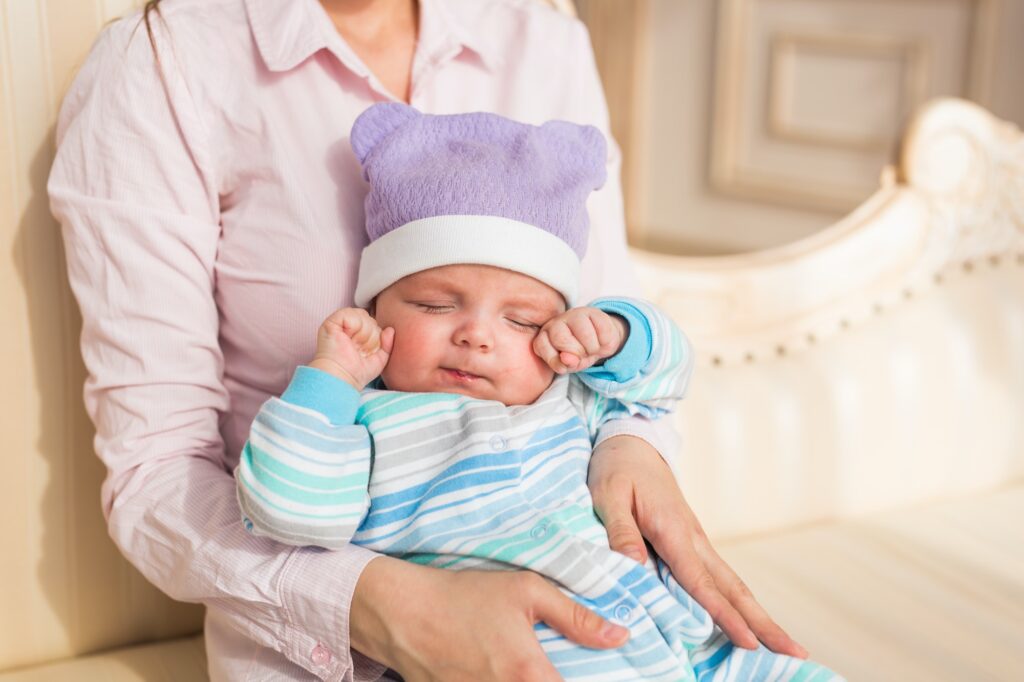
Just like grown-ups, babies have a wide range of habits. Rubbing their faces is pretty common, and it’s often a way for them to self-soothe or explore their senses. They’re discovering their tiny noses, chubby cheeks, and fascinating eyelashes for the first time, after all. So, a little face rubbing is generally par for the course.
However, there’s a difference between regular, curious face rubbing and what you might perceive as “aggressive” face rubbing. If you notice your baby persistently rubbing their face, even when it seems to cause discomfort or if they appear distressed, it might warrant a closer look. Aggressive face rubbing could be a sign that something else is going on.
Common Reasons Why Babies Rub Their Faces
Babies often rub their faces for the same reasons adults do: it can feel good, it can relieve a little stress, and it can be a hard-to-break habit. It’s also part of their discovery process. Their tiny hands are their investigative tools to explore their surroundings, including their own faces.
However, there are other common reasons too. Teething can prompt a baby to rub their face, as the pain in their gums might cause them to seek relief by applying pressure to their cheeks or ears. Face rubbing can also be a sign of tiredness, as your little one fights the sandman’s call.
In some instances, your baby might rub their face due to discomfort from allergies, rashes, or other skin irritations.
Deciphering Your Baby’s Behavior: Rubbing vs. Scratching
Discerning between face rubbing and scratching is crucial. While the former is often related to self-soothing, exploration, or minor discomforts, the latter may indicate a more pressing issue, such as a skin condition or allergic reaction. So, keep a keen eye out for the difference!
As you navigate this new world of baby behaviors, remember that you’re learning as you go—and that’s perfectly okay. If your baby’s face rubbing becomes aggressive or is accompanied by other symptoms, it might be time for a more detailed examination. So, let’s unpack what aggressive face rubbing might mean and how you can help your little one.
Detailed Examination: Baby Aggressively Rubbing Face
As a new parent, nothing tugs at your heartstrings quite like seeing your baby distressed or uncomfortable. When your baby rubs their face more aggressively than usual, it can send your parental radars on high alert. Let’s delve a little deeper into some common causes behind this behavior.
Teething and Its Role in Aggressive Face Rubbing
Teething, the bane of many babies (and parents!), can sometimes be the culprit behind aggressive face rubbing. As those little chompers push their way through your baby’s gums, it can cause all sorts of discomfort. Many babies have a hard time localizing the pain and may end up rubbing their faces in an attempt to soothe their aching gums. If you notice your baby drooling more than usual or if they’re especially fussy, teething could be the root cause of their face rubbing.
Allergies and Skin Irritations: Other Potential Causes
Another factor to consider is allergies and skin irritations. Babies’ skin is super sensitive, and sometimes, even the slightest trigger can cause discomfort. Allergens in the environment, such as dust or pet dander, can cause reactions. Baby skincare products or laundry detergents can also cause irritations, leading to a fussy baby who can’t seem to stop rubbing their face.
A tell-tale sign of a skin-related issue is if your baby’s face rubbing is accompanied by redness, dryness, or small bumps. It could be a reaction to a new product, a sign of eczema, or maybe even a food allergy. Remember, it’s not always easy to pinpoint the exact cause, but your pediatrician can help you narrow it down.
The Role of Tiredness and Sleepiness
Ever caught yourself rubbing your eyes after a long day? Well, babies are no different! Sleepiness can often trigger face rubbing. As your baby’s body winds down for sleep, they might start rubbing their eyes and face as a sort of self-soothing mechanism. It’s like their version of counting sheep.
The problem arises when this self-soothing action becomes aggressive or if they’re having trouble settling down. It’s crucial to establish a consistent sleep routine to ensure your baby gets enough rest and doesn’t resort to excessive face rubbing out of exhaustion.
Now that we’ve gone over some potential causes, it’s important to remember that every baby is unique. Some may be more prone to face rubbing due to teething, while others may do so because they’re tired or experiencing a skin irritation.
Understanding why your baby is rubbing their face aggressively is the first step. But how should you respond to it? Fear not, fellow parents! Up next, we’ll provide some practical advice to help soothe your little one. Just remember, you’re doing an incredible job navigating these tricky waters. Let’s keep going!
Practical Advice for Parents: How to Respond
As parents, seeing your baby in distress can bring about a whirlwind of emotions. But remember, it’s part of the job description! We’re here to arm you with some practical advice on how to respond when your baby starts rubbing their face aggressively.
When to Worry: Recognizing Unusual Behavior
First things first, let’s talk about when to start worrying. Babies are complicated little beings and what may seem like unusual behavior to us might just be another day in the life of a baby. However, there are a few signs to look out for that might indicate that it’s more than just a self-soothing behavior.
For instance, if your baby seems particularly distressed, is losing sleep, or if the face rubbing is accompanied by other symptoms such as fever, rashes, or changes in eating habits, it might be time to consult a professional. Always trust your gut – if something doesn’t feel right, it probably isn’t.
Effective Techniques to Soothe Your Baby
On to the more hands-on stuff: soothing your baby. If teething is causing the aggressive face rubbing, you might find that a chilled teething ring can do wonders. The cold can help numb the gums and offer some relief.
If skin irritations are to blame, ensure you’re using gentle, hypoallergenic products on your baby’s skin and in their laundry. Sometimes, a little fresh air can also help calm inflamed skin.
When it comes to sleepiness, a solid bedtime routine can be a game-changer. Ensure your baby is getting enough rest and has a quiet, comfortable space to sleep.
Creating a Safe Environment for Your Baby
Lastly, it’s essential to create a safe environment for your baby. If they’ve been rubbing their face more than usual, you might want to trim their nails more frequently to prevent them from accidentally scratching themselves. Providing plenty of soft, comfortable surfaces can also help.
In a nutshell, your primary job is to make sure your baby is as comfortable as possible while trying to determine what’s causing their aggressive face rubbing. But remember, it’s okay to ask for help. If you’re unsure about something or need more guidance, don’t hesitate to reach out to your pediatrician. They’re there to support you through every hiccup, concern, and yes, even every aggressive face rubbing episode. With that in mind, let’s press on to discuss some medical insights and the role of a pediatrician in these situations.
Medical Insights: When to Consult with a Pediatrician
Let’s cut to the chase. We’ve talked about why your baby might be rubbing their face and how you can soothe them. Now let’s dive into when it’s time to bring in the pros and what that could look like.
Red Flags That Need Immediate Attention
First off, let’s address the elephant in the room: red flags. These are signs that your baby’s face rubbing could be indicative of something more serious, and they require immediate attention.
We’re talking persistent crying or distress, signs of illness like fever or vomiting, severe skin rashes, or changes in eating and sleeping habits. If face rubbing is accompanied by any of these symptoms, it’s time to pick up the phone and schedule a pediatrician visit. Remember, it’s always better to err on the side of caution.
The Role of a Pediatrician in Alleviating Concerns
Which brings us to our next point: the role of a pediatrician. A pediatrician is not just a doctor for your little one but a trusted guide for you as a parent, helping to ease your concerns and provide reassurance.
They can provide a comprehensive assessment of your baby’s health, help identify the cause of the aggressive face rubbing, and offer tailored advice based on your baby’s unique needs. If required, they can also guide you towards specialist care.
In essence, your pediatrician is your partner in deciphering the baby language and navigating through the parenting maze. So don’t shy away from reaching out.
With all that said, it’s time to move onto the part where we answer some of the most frequently asked questions on this topic. Trust us, you’re not alone in this – there are many parents out there just like you, searching for answers. Let’s get to it.
Frequently Asked Questions About Babies Rubbing Their Faces
Now let’s get down to brass tacks and address those burning questions you’ve got. Here are some common queries parents often have about their baby’s face rubbing habits.
Why is my baby aggressively rubbing their face with hands?
Babies rub their faces for several reasons. It might be because they’re tired, their skin is irritated, they’re teething, or even just because they’re discovering their own faces. If the rubbing becomes aggressive or excessive, it could be due to discomfort or distress. Keep an eye out for any other symptoms or changes in behavior.
Is it normal for my baby to keep rubbing their face?
Yep, it’s totally normal! Face rubbing can be a part of your baby’s self-soothing routine or just their way of exploring their senses. However, if it seems like they’re doing it excessively or it’s causing them discomfort, you might want to consult with a pediatrician.
How can I tell if my baby’s face rubbing is due to teething?
If your baby’s face rubbing is paired with other symptoms like drooling, irritability, or gum swelling, they might be teething. Often, babies rub their faces to relieve the gum discomfort that comes with new teeth pushing through.
Can allergies or skin irritation cause my baby to rub their face aggressively?
Absolutely. Allergies or skin irritations can make your baby’s face itchy or uncomfortable, leading them to rub it more than usual. Look out for signs of rash, redness, or dry patches on their skin.
Why does my baby rub their face on me, is this normal?
It sure is! Babies often rub their faces against their parents to show affection, to feel secure, or even just to get comfortable. It’s kind of like their way of cuddling.
What should I do if my baby is rubbing their face too much?
If your baby seems uncomfortable or the face rubbing is causing any sort of skin issue, it’s a good idea to check in with your pediatrician. They can help identify the cause and suggest possible solutions.
At what point should I consult a pediatrician about my baby’s face rubbing?
If your baby’s face rubbing is causing distress, disrupting their sleep, leading to skin issues, or is paired with other concerning symptoms like fever or changes in behavior, make an appointment with your pediatrician.
Are there any immediate red flags I should watch for related to my baby’s face rubbing?
Persistent crying, severe skin rashes, changes in eating or sleeping habits, or signs of illness like fever should prompt an immediate consultation with a pediatrician.
How can I soothe my baby if they are rubbing their face due to tiredness or sleepiness?
Try soothing your baby with a warm bath, a calming lullaby, or a gentle massage. Establishing a consistent bedtime routine can also help signal to your baby that it’s time to rest.
How can I create a safer environment to prevent my baby from hurting themselves while rubbing their face?
Ensure your baby’s nails are trimmed and smooth to prevent scratching. Also, make sure their sleeping and playing areas are clean and free from any irritants that could bother their skin.
Alright, now that we’ve covered some common FAQs, let’s round up and tie this all together with some final thoughts.
Concluding Thoughts: Baby Aggressively Rubbing Face with Hands
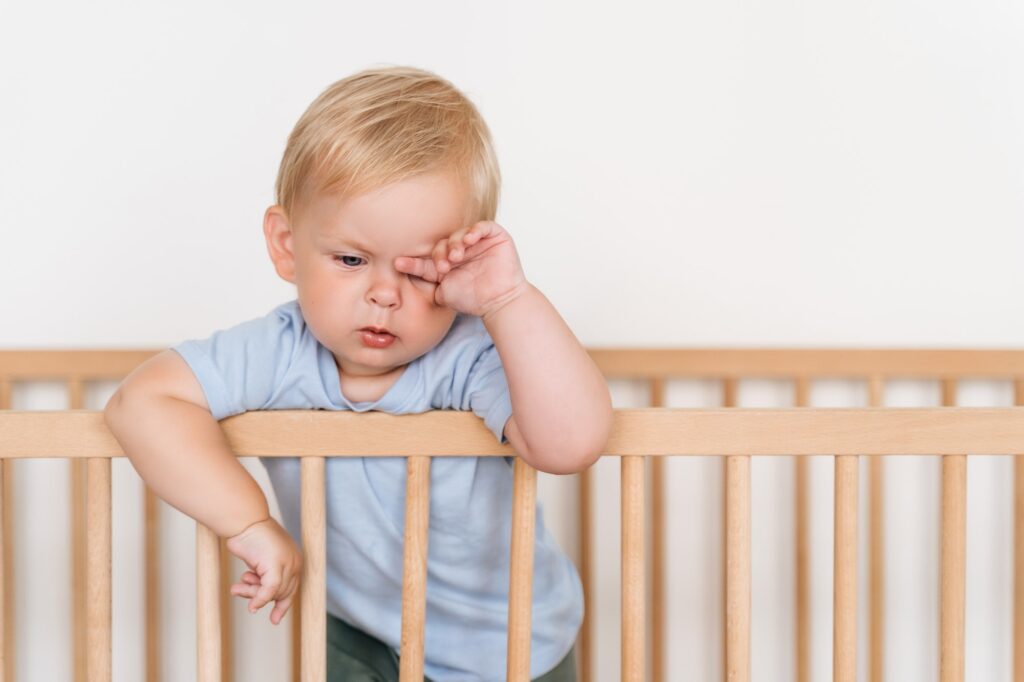
And there you have it, folks! We’ve walked through the wild and often misunderstood world of babies rubbing their faces. Who knew such a simple action could hold so many meanings, right?
From normal exploratory behavior to signals of teething, sleepiness, or allergies, we’ve shed some light on why your little one might be going to town on their cute cheeks. We’ve also touched on when it might be time to worry and chat with your pediatrician, along with some practical advice on how to respond, soothe, and create a safe environment for your bundle of joy.
So the next time your baby starts rubbing their face, take a deep breath and remember this guide. Because, let’s face it, being a parent is pretty much like being a detective and a superhero rolled into one.
As we wrap this up, I hope this article has been a reassuring and helpful resource on your parenting journey. If you’ve got a friend or two who could use this guide, don’t hesitate to share it. And hey, we’d love to hear your experiences and tips too, so drop a comment below!
Keep trusting your instincts, keep learning, and keep doing the phenomenal job that you’re doing. After all, there’s no one-size-fits-all when it comes to parenting, and we’re all in this wild ride together.
Until next time, take care and happy parenting!
Related Articles:-

